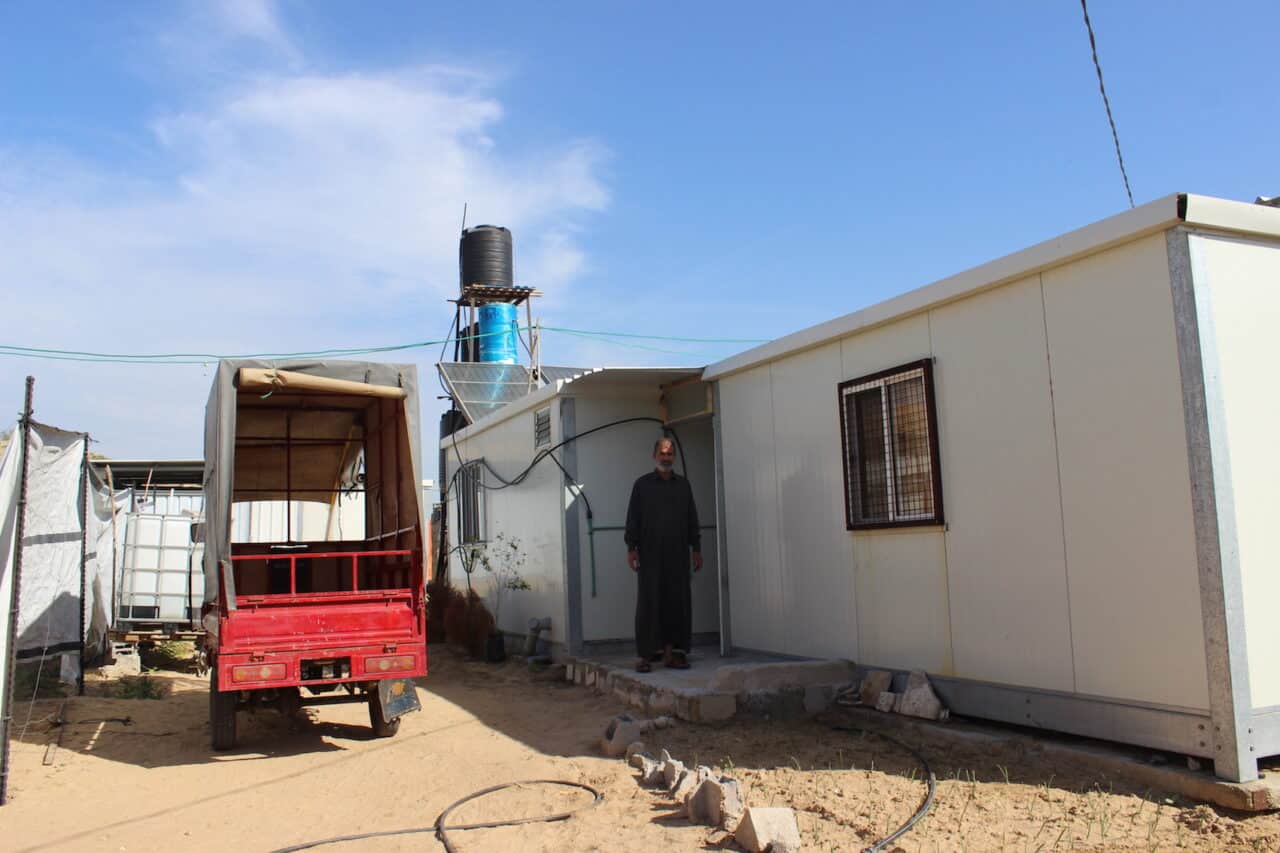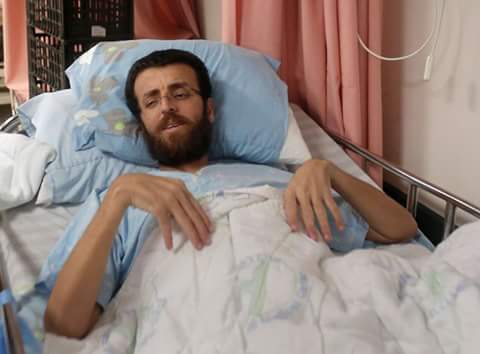-
Palestinian refugees fleeing Syria seek home in Gaza
February 11, 2016| International Solidarity Movement, Gaza team | Khan Younis, Gaza strip, occupied Palestine Palestinian refugee Heesham Ahmed El Khoranin and his family have already survived 2 Israeli assaults against the Gaza Strip since he returned after fleeing from Syria in 2011. Heesham grandparents were born in Masmiya, 42km north of Gaza, one of […]
-
Home demolition in Beit Hanina forces family to move into Shuafat Refugee Camp, East Jerusalem
10th February 2016 | International Solidarity Movement, Ramallah Team | East Jerusalem, occupied Palestine Yesterday evening, we went to visit 55 year old widow, Kifaya Rishek, after her home in Beit Hanina, occupied East Jerusalem, was demolished on the 27th of January. After losing her house in Beit Hanina, where she lived together with […]
-
Ambulance to attempt to transfer hunger striker to hospital in Ramallah
9th February 2016 | Hebron, occupied Palestine On Wednesday February 10th, 18:00 supporters will arrive at the hospital in Afula, accompanied by an ambulance and doctors, to transfer Mohammed Al-Qeeq for medical treatment in the Ramallah hospital. Journalist Mohammed Al-Qeeq is on the 77th day of hunger strike and fighting for his life. He has […]
Action Alert An Nabi Saleh Apartheid Wall Arrests BDS Bethlehem Bil'in Cast Lead Demonstration Denial of Entry Ethnic Cleansing Farmers Gaza Global Actions Hebron House Demolition International law Israeli Army Jerusalem Live Ammunition Nablus Ni'lin Prisoner Ramallah Rubber-coated steel bullets Settlement Settlers Settler violence Tear-Gas Canister Video



